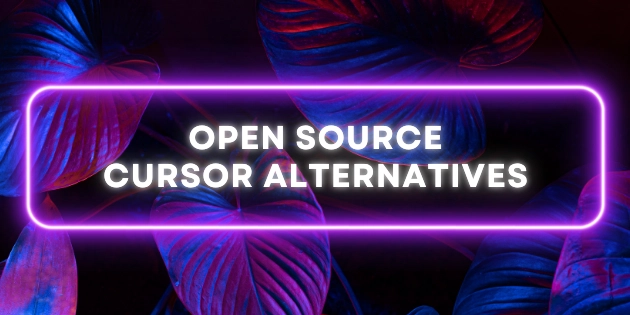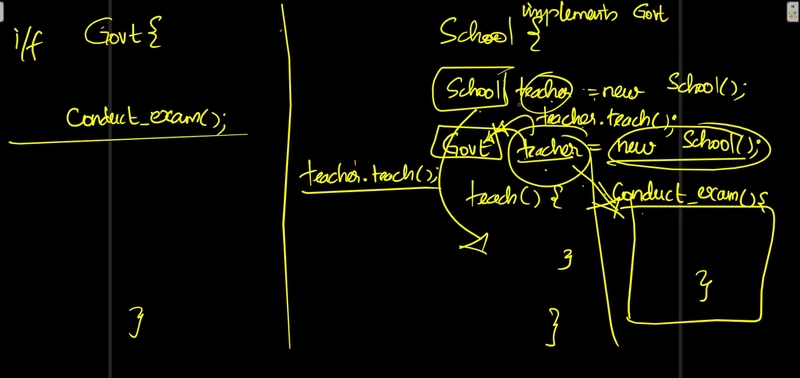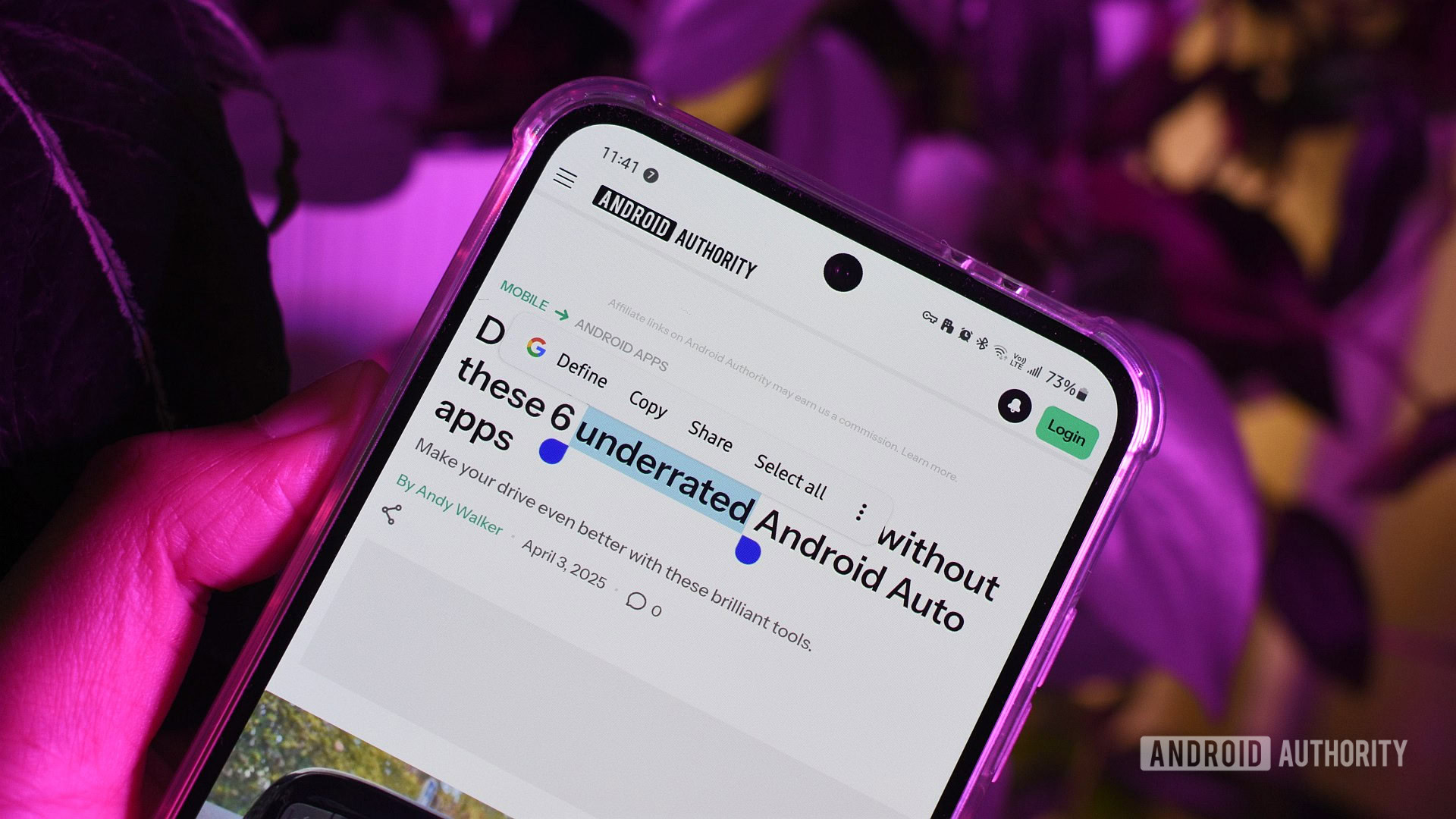Top 20 Open Source Cursor Alternatives 2025
In today's rapidly evolving developer landscape, AI-powered coding tools are changing how programmers write, debug, and optimize code. While Cursor has gained popularity as an AI-enhanced code editor built on VS Code, many developers seek open-source alternatives that offer greater privacy, customization, and freedom. This comprehensive guide explores the top 20 open source alternatives to Cursor that every developer should consider. What is Cursor? Before diving into alternatives, it's worth understanding what makes Cursor special. Cursor is an AI-powered code editor built on VS Code that integrates large language models for code completion, refactoring, and explaining code. Its advanced features include inline code editing, contextual code generation, and intelligent chat capabilities. Why Consider Open Source Alternatives? Open source alternatives offer several advantages: Privacy: Your code stays private and doesn't contribute to training commercial AI models Customization: Freedom to modify and adapt tools to specific needs Community-Driven: Continuous improvements from passionate developers Cost-Effective: No subscription fees or API token limitations Top 20 Open Source Cursor Alternatives 1. Void Void stands as one of the most promising open source alternatives to Cursor. Built as a fork of VS Code, it offers a familiar interface while adding powerful AI capabilities. Key Features: Tab-based intelligent code completion Inline code editing with Ctrl+K File context-aware AI chat Direct integration with various LLMs (Claude, GPT, Gemini) Local model hosting via Ollama Complete control over your data Void is backed by Y Combinator and aims to provide all the AI features developers love while maintaining the open source ethos. It supports seamless migration of themes, keybinds, and settings from VS Code. 2. PearAI PearAI presents itself as a comprehensive open source AI code editor built on VS Code and Continue. It offers robust AI features while emphasizing data privacy. Key Features: AI chat integration PearAI Creator for code generation AI debugging capabilities Support for multiple programming languages Customizable AI integrations While some developers have questioned PearAI's originality due to its reliance on Continue, it still offers a viable open source alternative to Cursor. 3. Codeium Codeium stands out as a powerful AI coding assistant that offers a generous free tier and open source components. Rather than a standalone editor, it integrates with popular editors like VS Code, Neovim, and JetBrains IDEs. Key Features: AI-powered code completions Support for over 70+ programming languages Natural language understanding Context-aware suggestions No API token limitations on the free tier Codeium has gained significant popularity due to its robust capabilities and lack of restrictions on the free tier. 4. Continue Continue is an open source AI coding assistant that focuses on enhancing your existing editor rather than replacing it. It has served as the foundation for other tools in this space. Key Features: File-aware code completions Contextual code generation Support for multiple editors Local model support Customizable prompts Continue's philosophy centers on augmenting your existing workflow rather than forcing you to adapt to a new editor. 5. VSCodium VSCodium offers a truly open source version of VS Code without Microsoft's telemetry and tracking. While not specifically AI-focused, it serves as an excellent base for adding open source AI extensions. Key Features: Identical functionality to VS Code No telemetry or tracking Compatible with most VS Code extensions Regular updates that follow VS Code releases Easy migration from VS Code When combined with open source AI extensions, VSCodium offers a privacy-respecting alternative to Cursor. 6. TabNine Open Source TabNine offers both commercial and open source versions of its AI code completion tool. The open source version provides powerful code suggestions based on statistical models. Key Features: Context-aware code completions Support for multiple programming languages Integration with various editors Local model capabilities Customizable behavior TabNine's open source version provides a solid foundation for AI-assisted coding without privacy concerns. 7. Zed Developed by the creators of Atom and Tree-sitter, Zed is a high-performance code editor built with Rust that includes AI capabilities. It focuses on speed and efficiency. Key Features: AI-powered completions Lightning-fast performance Collaborative editing Modern, minimalist interface Built with Rust for stability Zed combines modern editor features with AI assistance in a sleek, performance-focused package. 8. Eclipse Che Eclipse Che goes beyond a simple code editor to provide a full cloud-based IDE with extensible A

In today's rapidly evolving developer landscape, AI-powered coding tools are changing how programmers write, debug, and optimize code. While Cursor has gained popularity as an AI-enhanced code editor built on VS Code, many developers seek open-source alternatives that offer greater privacy, customization, and freedom. This comprehensive guide explores the top 20 open source alternatives to Cursor that every developer should consider.
What is Cursor?
Before diving into alternatives, it's worth understanding what makes Cursor special. Cursor is an AI-powered code editor built on VS Code that integrates large language models for code completion, refactoring, and explaining code. Its advanced features include inline code editing, contextual code generation, and intelligent chat capabilities.
Why Consider Open Source Alternatives?
Open source alternatives offer several advantages:
- Privacy: Your code stays private and doesn't contribute to training commercial AI models
- Customization: Freedom to modify and adapt tools to specific needs
- Community-Driven: Continuous improvements from passionate developers
- Cost-Effective: No subscription fees or API token limitations
Top 20 Open Source Cursor Alternatives
1. Void
Void stands as one of the most promising open source alternatives to Cursor. Built as a fork of VS Code, it offers a familiar interface while adding powerful AI capabilities.
Key Features:
- Tab-based intelligent code completion
- Inline code editing with Ctrl+K
- File context-aware AI chat
- Direct integration with various LLMs (Claude, GPT, Gemini)
- Local model hosting via Ollama
- Complete control over your data
Void is backed by Y Combinator and aims to provide all the AI features developers love while maintaining the open source ethos. It supports seamless migration of themes, keybinds, and settings from VS Code.
2. PearAI
PearAI presents itself as a comprehensive open source AI code editor built on VS Code and Continue. It offers robust AI features while emphasizing data privacy.
Key Features:
- AI chat integration
- PearAI Creator for code generation
- AI debugging capabilities
- Support for multiple programming languages
- Customizable AI integrations
While some developers have questioned PearAI's originality due to its reliance on Continue, it still offers a viable open source alternative to Cursor.
3. Codeium
Codeium stands out as a powerful AI coding assistant that offers a generous free tier and open source components. Rather than a standalone editor, it integrates with popular editors like VS Code, Neovim, and JetBrains IDEs.
Key Features:
- AI-powered code completions
- Support for over 70+ programming languages
- Natural language understanding
- Context-aware suggestions
- No API token limitations on the free tier
Codeium has gained significant popularity due to its robust capabilities and lack of restrictions on the free tier.
4. Continue
Continue is an open source AI coding assistant that focuses on enhancing your existing editor rather than replacing it. It has served as the foundation for other tools in this space.
Key Features:
- File-aware code completions
- Contextual code generation
- Support for multiple editors
- Local model support
- Customizable prompts
Continue's philosophy centers on augmenting your existing workflow rather than forcing you to adapt to a new editor.
5. VSCodium
VSCodium offers a truly open source version of VS Code without Microsoft's telemetry and tracking. While not specifically AI-focused, it serves as an excellent base for adding open source AI extensions.
Key Features:
- Identical functionality to VS Code
- No telemetry or tracking
- Compatible with most VS Code extensions
- Regular updates that follow VS Code releases
- Easy migration from VS Code
When combined with open source AI extensions, VSCodium offers a privacy-respecting alternative to Cursor.
6. TabNine Open Source
TabNine offers both commercial and open source versions of its AI code completion tool. The open source version provides powerful code suggestions based on statistical models.
Key Features:
- Context-aware code completions
- Support for multiple programming languages
- Integration with various editors
- Local model capabilities
- Customizable behavior
TabNine's open source version provides a solid foundation for AI-assisted coding without privacy concerns.
7. Zed
Developed by the creators of Atom and Tree-sitter, Zed is a high-performance code editor built with Rust that includes AI capabilities. It focuses on speed and efficiency.
Key Features:
- AI-powered completions
- Lightning-fast performance
- Collaborative editing
- Modern, minimalist interface
- Built with Rust for stability
Zed combines modern editor features with AI assistance in a sleek, performance-focused package.
8. Eclipse Che
Eclipse Che goes beyond a simple code editor to provide a full cloud-based IDE with extensible AI capabilities through its plugin system.
Key Features:
- Kubernetes-native development environment
- Workspace server with RESTful APIs
- Extensive plugin ecosystem
- Collaborative features
- Containerized development environments
Eclipse Che creates a complete development environment that can be extended with AI capabilities.
9. CodeT5
While not a standalone editor, CodeT5 is an open source transformer-based model specifically designed for code-related tasks that can be integrated into various editors.
Key Features:
- Code completion suggestions
- Bug detection capabilities
- Code summarization
- Support for multiple programming languages
- Customizable model for specific domains
CodeT5 can be integrated into existing editors to provide AI capabilities without sacrificing privacy.
10. Helix
Helix is a modal text editor inspired by Vim but written in Rust, offering modern features including AI assistance through plugins.
Key Features:
- Multiple selections and editing
- Tree-sitter integration
- Smart, contextual auto-completion
- Vim-like modal editing
- Built-in language server support
Helix combines the efficiency of modal editing with modern conveniences and AI capabilities.
11. NeoVim with AI Plugins
NeoVim's plugin ecosystem includes several open source AI coding assistants that provide Cursor-like functionality within the powerful Vim environment.
Key Features:
- Extensive plugin ecosystem
- Modal editing efficiency
- Customizable AI integrations
- Low resource requirements
- Scripting capabilities via Lua
NeoVim with AI plugins offers the efficiency of Vim with modern AI capabilities.
12. kate-dev/forge
Forge is an open source project that brings AI capabilities to the Kate text editor, creating a lightweight but powerful alternative to Cursor.
Key Features:
- Inline AI code completion
- Context-aware suggestions
- Integration with various AI models
- Low resource requirements
- Customizable behavior
Forge provides AI capabilities while maintaining the performance advantages of lightweight editors.
13. Emacs with Eglot and AI Plugins
The venerable Emacs editor can be transformed into an AI powerhouse using various open source packages that provide Cursor-like functionality.
Key Features:
- Extreme customizability
- Org-mode integration for documentation
- Support for multiple AI services
- Extensible through Emacs Lisp
- Decades of community extensions
Emacs with AI plugins offers unparalleled customization potential for power users.
14. CodeLlama Integration Tools
CodeLlama is Meta's open source code generation model that can be integrated into various editors to provide Cursor-like functionality.
Key Features:
- Fully open source LLM specifically for code
- Support for multiple programming languages
- Local model hosting options
- Customizable generation parameters
- No data sharing with third parties
CodeLlama integrations provide powerful AI assistance while keeping your code private.
15. Theia IDE
Eclipse Theia is an extensible platform to develop web-based tools and IDEs with built-in support for AI extensions.
Key Features:
- VS Code extension compatibility
- Cloud and desktop deployment options
- White-labeling and customization
- Workspace management
- Git integration
Theia combines the familiar VS Code experience with open source values and AI potential.
16. Code-OSS
Code-OSS is the open source core of Visual Studio Code, providing a foundation for building AI-enhanced editors without Microsoft's proprietary components.
Key Features:
- Identical core features to VS Code
- Support for extensions
- No telemetry
- Regular updates from upstream
- Customizable interface
Code-OSS serves as an excellent starting point for building custom AI-enhanced editors.
17. Tabnine for JetBrains IDEs
For those who prefer JetBrains tools, Tabnine offers an open source AI assistant that integrates with the entire JetBrains suite.
Key Features:
- Smart code completions
- Contextual suggestions
- Seamless IDE integration
- Language-specific assistance
- Customizable behavior
Tabnine brings AI capabilities to the robust JetBrains environment.
18. Kite Open Source Components
While Kite as a company has shut down, its open source components live on and can be used to create Cursor-like functionality.
Key Features:
- Python-focused code assistance
- Documentation integration
- Function usage examples
- Integration with multiple editors
- Community-maintained extensions
Kite's open source components provide specialized Python assistance.
19. Codeium for VS Code
Unlike the Codeium service mentioned earlier, the Codeium VS Code extension is open source and provides AI-powered code completions directly in VS Code.
Key Features:
- Context-aware completions
- Support for multiple languages
- Natural language queries
- Customizable settings
- Extension API for further customization
The open source extension brings Codeium's capabilities directly to VS Code.
20. GitHub Copilot CLI (Self-Hosted)
For those who prefer terminal-based development, self-hosted versions of the GitHub Copilot CLI provide Cursor-like functionality in the command line.
Key Features:
- Command-line AI assistance
- Integration with terminal editors
- Shell command generation
- Explanation of code snippets
- Local model hosting options
Terminal-based AI assistance offers an alternative approach to AI-powered development.
Conclusion
The landscape of open source AI coding tools is rapidly evolving, with new options emerging regularly. These 20 alternatives to Cursor offer varying approaches to AI-assisted development while maintaining the principles of open source software. Whether you prefer a standalone editor, an extension to your existing tools, or a complete development environment, there's an open source solution that can enhance your coding experience while respecting your privacy and freedom.
By exploring these alternatives, you can find the perfect balance of features, performance, and philosophy that aligns with your development workflow. As AI assistance becomes increasingly integral to software development, these open source tools ensure that the benefits remain accessible to all developers, regardless of budget or privacy concerns.









































































































































































![[The AI Show Episode 144]: ChatGPT’s New Memory, Shopify CEO’s Leaked “AI First” Memo, Google Cloud Next Releases, o3 and o4-mini Coming Soon & Llama 4’s Rocky Launch](https://www.marketingaiinstitute.com/hubfs/ep%20144%20cover.png)




























































































































![[DEALS] The All-in-One Microsoft Office Pro 2019 for Windows: Lifetime License + Windows 11 Pro Bundle (89% off) & Other Deals Up To 98% Off](https://www.javacodegeeks.com/wp-content/uploads/2012/12/jcg-logo.jpg)



























![Is this too much for a modular monolith system? [closed]](https://i.sstatic.net/pYL1nsfg.png)






















































































































_Andreas_Prott_Alamy.jpg?width=1280&auto=webp&quality=80&disable=upscale#)
































































































![What features do you get with Gemini Advanced? [April 2025]](https://i0.wp.com/9to5google.com/wp-content/uploads/sites/4/2024/02/gemini-advanced-cover.jpg?resize=1200%2C628&quality=82&strip=all&ssl=1)













![Apple Shares Official Trailer for 'Long Way Home' Starring Ewan McGregor and Charley Boorman [Video]](https://www.iclarified.com/images/news/97069/97069/97069-640.jpg)
![Apple Watch Series 10 Back On Sale for $299! [Lowest Price Ever]](https://www.iclarified.com/images/news/96657/96657/96657-640.jpg)
![EU Postpones Apple App Store Fines Amid Tariff Negotiations [Report]](https://www.iclarified.com/images/news/97068/97068/97068-640.jpg)
![Apple Slips to Fifth in China's Smartphone Market with 9% Decline [Report]](https://www.iclarified.com/images/news/97065/97065/97065-640.jpg)




































































































































